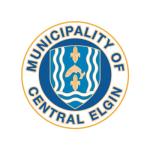All municipalities have Emergency Plans. Usually, they are reviewed and rehearsed once or twice a year. But how could you possibly rehearse what Fiona and Ian have done to towns and cities in the past ten days?
The utter devastation of these incredible storms has decimated lives and communities.
The death toll from Ian is now over 100 and rising.
It has been gut-wrenching to watch the pictures from the Maritimes and from the Gulf Coast of the USA, and hear the stories of loss and bravery. Seeing what Fiona did to homes on the rocky crags of parts of our Maritime provinces has been awful. Our collective hearts have gone out to the residents.
The images from Florida have been just as frightful. Houses gone, with only a concrete pad and a few shreds of wood left. Marinas once filled with luxury boats that were battered and tossed on shore by 150mph winds. Downtown streets in Naples and Fort Myers with three or four feet of water. Snakes and alligators slithering down business avenues.
In all cases, it is the municipality that bears the initial brunt. Downed power lines. Water and sewage plants flooded or inoperable. Gas stations closed. Trees blocking roads or sitting on roofs. Cell towers not functioning. Bridges damaged or destroyed. Roads washed away. Traffic lights out. Cars abandoned on streets. Garbage piling up everywhere.
Provincial, state and federal governments are now stepping up and stepping in to provide assistance and money—heavens, these recoveries will take a lot of money. Billions and billions of dollars. Probably tens of billions.
It will take time to recover and rebuild. It will be years before some of these communities are fully functioning again; in some cases, homes and businesses will never be replaced. Trees that were uprooted will take decades to grow fully. Houses in low-lying areas may never be rebuilt.
As difficult as this has been to watch, these two immense tragedies are also a teaching moment for municipalities.
Despite thorough emergency planning, the sudden shock and scope of such storms are impossible to predict and totally prepare for.
For example: where do you put all the wreckage? When you have hundreds of homes and businesses destroyed, where do you get rid of the debris? Landfills are inadequate to handle the volume. Garbage dumps are a poor option. So where does all the trash go?
Another issue: How do you protect your citizens—many of them elderly and all of them in shock—from being preyed upon by unscrupulous charlatans who appear as 'contractors' and offer to clean up properties or 'fix' houses and buildings—for cash payments? There are going to be lots of examples of crooked deals and people at their most vulnerable being taken for a lot of money.
Another big challenge: how do you prioritize? If communities are wiped out, as happened along the Atlantic and Gulf Coasts, how does the City Council set priorities for rebuilding municipal infrastructure? City hall, to maintain good local government? Schools, so kids can return to some normalcy and keep learning? The local hospital, to ensure care for people who need it? A local fire or police station that was underwater?
Next, how does the council reflect at some point on the disaster and review its own emergency responses and policies, and how they can be improved?
And following that review, what changes should the municipality make? Should new zoning laws be enacted that may prohibit building in certain flood-prone areas? Should the city impose stricter building codes demanding building materials that may be more environmentally friendly, or provide greater stability? Should power lines be underground?
These are just some of the many decisions that local governments across Canada and the United States will be considering in the months to come. Communities are resilient, but a disaster of such scope as we have seen in these beautiful coastal towns and cities is awful. We all share that pain.
Our thoughts and prayers go out to all affected. And a little hard cash wouldn't hurt either.











